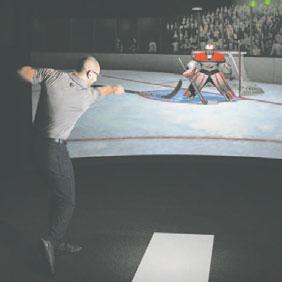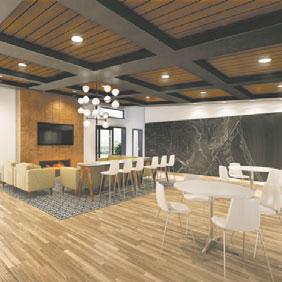Duluth



While the pandemic has wreaked havoc on businesses like dine-in restaurants and entertainment venues, it’s also been an opportunity for some area businesses, or parts of businesses, to prosper.
At-home brew boom
Not having to go to the office every day means fewer people picking up a coffee on their way to work or walking over to the nearby cafe for a break. Meeting up with friends for a cup of coffee isn’t as likely now either.
But caffeine addictions are hard to break.
“People aren’t going out for coffee as much so more people are brewing at home,” said Eric Faust, owner of Duluth Coffee Company.
Duluth Coffee Company’s downtown Duluth cafe has been closed since March, and its smaller cafe next to Hoop’s Brewing Company has been sold.
While business overall is down 30%, Faust said selling beans to home coffee makers has increased in grocery stores across the state — up 50% in the Twin Cities market. He did not
have figures available for Dulutharea grocery stores.

“When the pandemic hit, we found everybody was buying coffee in the grocery stores, so that business just increased,” Faust said. “It’s just kept us kind of stable.”
Russell Crawford, owner of Almanac Coffee, a roaster in Duluth Folk School in the Lincoln Park neighborhood, said he’s managed to grow his business by 10%-15% during the pandemic, even when the folk school’s Dovetail Cafe and Marketplace has been closed for much of the past year.
He’s done it by shifting focus from wholesale to bulk coffee sales and embracing the fact that more people would be drinking coffee from home.
“There definitely was this wave of unknown that kind of hit us,” Crawford said. “What I was able to do, and kind of what has made up for a lot of that, is just this pivot that occurred to a lot of people buying coffee from home.”
Now, he’s eyeing the addition of his first part-time employee in the spring to help.





“I am looking forward to more growth this year,” Crawford said.





Following their 2019 engagement, Zach and Megan Schneider had almost everything planned for their August 2020 wedding — including a 325-person guest list — when the coronavirus pandemic suddenly forced them to change it all.

The Duluth couple didn’t know how to move forward with their wedding to meet the state’s restrictions on large events, so they reached out to Mariah McKechnie at Northland Special Events in Duluth for help.
“As a business owner it was like fighting a fire every single day,” McKechnie said.
She and others in the event industry have had to constantly monitor the rules venues and gatherings have been under since March 2020, while also guiding couples as they try to salvage wedding plans.

The Schneiders opted for a small, 30-person wedding in Megan’s grandpa’s yard. They, like many other couples in the last year, had a more intimate ceremony with the people most important to them. These micro-weddings were popular across the Northland, especially since people could feel safe holding small gatherings outside in yards or tents.
For wedding planners like McKechnie and Mary Carlson, owner of Pure Events in Duluth, the micro-wedding fad has been fun. Carlson said the details couples could incorporate made the day extra special for them. Planning a smaller wedding takes less time for the event planners, so McKechnie said she was able to take on more clients and work with them for about eight hours in total, instead of the typical 40 hours or more a large wedding requires.
“They’re more economical for the client, too, because paying $3,000 for an all-inclusive experience is a lot less of an investment than $25,000 for a big wedding,” McKechnie said.
Some couples were willing to take the money they saved and spend it on decorations that wouldn’t have been feasible for a crowd of 200. Couples were also able to enjoy more time with their loved ones because they spend less time stressing about large-scale plans. The Schneiders also said their small group made mingling easy.
“I think Megan and I remember every piece of that day because it was so small and intimate,” Zach Schneider said.
Misty Matson, owner of Bella Rose Bridal in Duluth, said brides were also still willing to invest in their dream dress, regardless of their wedding size or location. Although she acknowledged that
many of her clients already have sizable budgets for their dress, Matson said she heard from many brides that they were willing to spend even more on their dress because they didn’t have to foot the bill of their large weddings anymore.
Cancellations cause complications
However, micro-weddings don’t solve the problem for everyone in the industry. Not everyone is willing to splurge so much if there won’t be as many people there to see the big event.
Photographer Bryan Koop, owner of Bryan Jonathan Weddings in Duluth, said booking these smaller events is anything but economical. A large wedding would employ his time for eight to 12 hours on a Saturday. Now, he spends maybe three hours shooting a wedding, but he won’t doublebook a day because he doesn’t want to run into scheduling problems if events run long.
“You lose the day whether you book a two-hour wedding or a 12-hour wedding. You can’t book anything else — or at least I don’t book anything else,” Koop said.
Ken Pogin, owner of Duluth Event Lighting, said he lost every event from March to June, which especially hurt knowing the circumstances were completely out of his control.
WEDDINGS : Page 7
From Page 1
About this time in 2020, grocery stores could hardly keep up with demand when it became clear COVID-19 would hit the area. Good luck finding toilet paper, soap and other cleaning products in the early days of the pandemic.
Though the panic shopping wound down, grocery stores have continued to see an increase in sales.
“Since all the restaurants have been closed down, there’s really nowhere to go other than your grocery store,” said Steve Schadewald, general manager of Mount Royal Foods in Duluth.



Schadewald said sales have been up over the last year, though it’s been with fewer customers buying more.
What’s happening at Mount Royal reflects a national trend. In 2020, 65% of shoppers reported
cooking more at home and 48% of shoppers reported spending more money per shopping trip, according to a survey conducted by sales and marketing services provider Acosta.
Will this keep up? Acosta found: “Post-COVID-19, 75% of consumers plan to stick with at least some of their new habits.”
Outdoor recreation
With restrictions on indoor gatherings, people went outside more, and bought new gear to take with them.
In the spring, bicycle shops throughout Duluth saw huge demand for new bikes. It wiped out their inventory and replenishing stock has been difficult. But such an increase in sales was a nice surprise when so much was unknown.

Then came winter. And for stores like Ski Hut, which sell both bikes and skis, it was deja vu. Cross-country skis flew out of the store and restocking has been difficult.
“New skiers are way up this year. We’ve seen more people coming in and buying new skis or skis

for the first in 30 years,” said Ansel Schimpff, who works in sales at Ski Hut. “Way more than we’ve ever seen before. It’s been pretty wild.”
It’s happening with fishing gear at Marine General on London Road in Duluth, too.
Demand and sales have been up during the pandemic, but, coupled with issues along the supply chain, inventory has been hard to come by, owner Russ Francisco said.
The biggest rush came after the $600 stimulus checks were approved in December.
“It was like somebody turned the accelerator on ... good inventory levels and stuff all over the country disappeared in literally 24 hours,” Francisco said. “We went from having plenty of inventory to none. It was crazy.”
He wants to make sure the store is ready if the next stimulus bill is passed.
“Now the big worry is, if we get a $1,400 kick, what are we going to have for people to buy?” Francisco said. “We’re trying hard to get inventory and make sure we have enough stuff.”
PANDEMIC BOOM : Page 5


From Page 4









If you’ve used the pandemic to finally get around to some home improvement projects, you’re not alone.
By July, 76% of homeowners had “carried out at least one home improvement project since the start of the COVID pandemic,” a survey conducted by Porch.com found.





Mike DeSanto, who owns and runs Lakeside Lumber with his wife, said this summer saw demand soar.



“It was really rampant there for a while,” DeSanto said. “We were almost too busy. We couldn’t handle it with the two of us.”
DeSanto said sales have since slowed down, partly because it’s a slow time of the year and partly because he doesn’t want to charge customers $8.65 for an 8-foot two-by-four. That’s more than twice the average price of two-by-fours in 2019, according to Madison’s Lumber Reporter. “Holy mackerel,” DeSanto said. “That’s price gouging.”







“The wedding and event industry is probably one of the hardest hit because of COVID because we are exactly what COVID is telling us not to do,” Pogin said. “How do you do a curbside pickup for a wedding?”
He saw things slowly pick up midsummer with outdoor weddings or clients upgrading the size of their venue to ensure social distancing. Through this, Pogin and his crew got back to work to create beautiful wedding venues, including backyard tents, golf courses, country clubs and even county fairgrounds.
Weddings are already extremely seasonal. In the Northland, the season doesn’t pick up until June or July, and almost completely drops off in late fall. Because of this, there can be hundreds of couples fighting to secure the same 16 Saturdays for a wedding. Koop said dates are perishable, and even if a couple reschedules their wedding to a later date, that original date is a day of work and revenue he can never get back.
Since weddings take months of planning, couples need to have multiple options to fall back on depending on the current restrictions. Planners also have had to monitor the rules in both Minnesota and Wisconsin.
“We’re seeing a lot of changes, and those changes look different for every single couple,” Carlson said. “For some it’s downsizing, for some it’s postponing again, and unfortunately, a lot of clients are going over to Wisconsin.”
Couples changing their plans to go to less-restricted venues across the border has hit Duluth’s vendors as they lose clients. At the Greysolon Ballroom downtown, sales director Jax Eisenmann said in the last year, they’ve hosted the same number of events they used to hold in a week.
“All of it has been painful for us to see Greysolon not bustling with people celebrating events, but we’ve taken the time and we’ve worked on projects to preserve and enhance the original beauty of Greysolon,” Eisenmann said.
One of the biggest projects they’ve undertaken is removing the carpet on the ballroom level to restore the original tile in the 1924 building. Eisenmann said without the slowdown of
the pandemic, they wouldn’t have had the time to upgrade the space.
She also credited the restaurant side of the company for helping them stay afloat for the last year. Black Woods’ takeout options and catering for some small events, including weddings, have given them some income, although it doesn’t compare to a typical business year at all.
Other businesses, like Diamond MC Entertainment in Duluth, have incorporated several creative solutions to keep their business running during the dry spell of weddings.
Owner Mark Cpin said one COVID-19 addition to his business was having wedding attendees wear colored wristbands to indicate their comfort level: red for “keeping my distance;” yellow for “I’m OK with talking but not touching;” and green for “I’m OK with a hug and a handshake.”
Cpin said he made his business work by going almost completely digital at times. This meant hosting livestreams of the wedding ceremony for loved ones to watch from their homes and installing large screens at the wedding so couples could see and interact with their guests from afar. They also started using an app to take song requests so people didn’t have
to approach the DJ booth.
“What’s neat about this is I think, in a lot of ways, this is going to help out in the future,” Cpin said. “We’ve kind of come up with solutions for problems that existed before that we never really took into account.”
He said they plan to continue to offer these digital options even after the pandemic is no longer such a big threat.
Looking forward to moving forward
Wedding businesses and venues are already seeing things pick up as couples scramble to rebook what they lost in 2020. Most people said 2021 is almost fully booked, and 2022 is projected to be one of the busiest seasons yet. Couples are scheduling weddings earlier in the spring than in years past, and many people are opting for Friday weddings because almost every Saturday is booked.
McKechnie said much of the preparation for these upcoming weddings is like trying to read a crystal ball. Events for earlier in the 2021 season have already started to be canceled or postponed again.
“Brides from last year moved into 2021 hoping they could hold their
wedding, only to find out, a year later, we’re still in the same situation,” Pogin said.
For Cale Seis and Kristi Poling, their August 2021 wedding plans have shifted, but with help from McKechnie, they’re looking forward to their smaller wedding. The Minneapolis couple decided to move their nuptials up north after downsizing their guestlist from 130 to 30.

“I think it’s a nice change,” Seis said. “I think a lot of people think that if we’re changing everything our dreams will be dashed, but everyone from different parts of our lives will be able to talk to each other at the same time and sit down to dinner together.”
Poling added that the couple hasn’t had to give up their dream wedding at all — this plan has helped them prioritize to make it become their dream wedding.
Pogin said that he has encouraged every couple he’s worked with to go ahead and get married, even if it’s just a civil ceremony.
“Even though you can’t have the party, the reason you wanted to get married is still there,” Pogin said. “So please, please still get married and then have the party whenever you can.”
Cpin, on the other hand, said he doesn’t think couples should compromise their plans if the big party is part of their dream wedding. He said either way, he and other Duluth wedding industry workers are there to make it happen for them.
“If you want to have your wedding during a pandemic, there are ways around it. We can make it work,” Cpin said. “But don’t settle. You’ve waited this long, so have the wedding that you want, and if it takes a little bit longer, so what? You guys aren’t going anywhere.”
When big parties and receptions do start happening again, which some local wedding experts believe will start to happen this fall, area vendors are ready. Eisenmann said she and the Greysolon staff are gearing up for when things go from zero to 100.
Cpin said he believes the parties coming up are going to be like never before.
“It’s going to be not only a wedding celebration, but a celebration of friends and family and being able to get together again,” Cpin said. “I think parties are going to be huge — we just have to hold on a little longer. Those vaccines are coming!”

What do volunteer drivers do?
Volunteer drivers provide individuals in need of transportation with a means of getting to and from medical appointments.
Anyone who is:
• Age 21 or older
• Has a valid driver’s license
• Has proof of insurance
• Has a clean driving record
• Has not had a suspended license or DWI within the past 3 years
• Has had no felony convictions
What type of insurance coverage must a volunteer driver have?


A volunteer driver is required to provide enough insurance to allow them to drive legally in the state of Minnesota. The vehicle must be safe, dependable and clean. Volunteercom-pacts to large SUVs.
Call Transportation Coordinator Scott Olson at (218) 735-6886 or scott.olson@aeoa.org.

A. All volunteer drivers are reimbursed at the maximum federal mileage rate. Mileage is reimbursed from the time the drivers leave their home until they return home.
A. Volunteer drivers submit mileage reimbursement forms for all rides provided and receive reimbursement by direct deposit.
While 2020 and the COVID-19 pandemic brought many challenges to the business community, for some it marked the start of something new. The West Duluth community welcomed a few new small businesses to bring more eco-friendly choices, ambiance and a new place to gather — though at a responsible distance.
Ren Market owner Kendra Dean has a passion for sustainability. Her background in environmental science and own journey to reduce the waste she produces inspired her to open her store, which specializes in zero-waste products.
“I became frustrated that it’s so hard to find products, specifically for the kitchen and bathroom, that are plastic-free. So much comes packaged in plastic and we don’t think anything about grabbing another container,” Dean said. “I was a little disgusted with myself for the amount of waste.”
After Dean visited a zero-waste store in the Twin Cities, she was inspired by the concept and believed it would fit in Duluth.
At Ren Market, located at 519 N. Central Ave., Dean buys items, such as eco-friendly shampoo, in bulk and customers bring their own containers for refills.
“It produces less waste and that way you only pay for the amount that you want,” Dean said.
Dean strives to keep her cleaning and household products, from kitchen cleaners to shampoo bars, from ethical sources, affordable and environmentally friendly.
The store opened in November and Dean said the community has embraced the concept.
“People kind of need to come in and look around before they get it, but once they do, they’re usually pretty excited,” Dean said.
Naturalight Candles shines light
Kyia Plummer has been making candles for nine years. It started as a hobby.
She made a few for friends and family around the holidays. But eventually, she started making them to sell at craft shows and art marketplaces.
“Then 2020 happened and all the shows and festivals I go to were canceled,” Plummer said.
“I decided it was time to just go for it. The space popped up and I thought, yeah. Let’s give it a shot.” Her store is located at 517 N. Central Ave.
Plummer’s candles are 100% soybean wax candles made with phthalate- and paraben-free oils and pure-cotton wicks — avoiding petroleum byproducts, lead and zinc in the wicks.
“They last longer than average candles and give off a nice scent that doesn’t slap you in the face with a strong scent when you walk into a room,” Plummer said.

In addition to her handmade candles, Plummer sells gift-worthy merchandise created by local artists and friends.
“So far, the community’s been accepting and excited,” Plummer said. “People seem excited to see small businesses like this popping up and it’s just been a wonderful experience so far.”
The Boreal House celebrates tough first year
When The Boreal House owner Katie Fast and her business partner, Julie LaTourelle, opened up the small bar at 330 N. 57th Ave. W. in February 2020, Fast remembers being concerned about whether people would come.



“We sat in the bar and I thought, ‘I really hope somebody shows up,’” Fast said. “It was our first time doing something like this and we didn’t know how it would go. But a year later, I can say, ‘Man, did people show up.’”
But owning a new bar in 2020 did come with some unexpected complications. Five weeks after their grand opening, the first COVID-19 shutdown hit and the bar didn’t open again until June 1. They’re recently reopened after the lateNovember shutdown.

“But we’re still here,” Fast said. “And the outpouring of support from this community has been wonderful.”
The bar specializes in local brews on 16 taps, a craft cocktail menu made from local and regional liquors and a snack menu with items such as nachos, Duluth’s Best Bread pretzels and homemade dips with chips.
It was our first time doing something like this and we didn’t know how it would go. But a year later, I can say, ‘Man, did people show up.’– KATIE FAST co-owner of The Boreal House


















































 By Teri Cadeau tcadeau@duluthnews.com
By Teri Cadeau tcadeau@duluthnews.com






With fewer people leaving their homes for work or travel, businesses that specialize in pets have seen a decline in business. Andrea Schokker, owner of Canal Bark, a pet boarding and day care service at 4502 Airpark Boulevard, said she’s seen a definite decrease in boarding clients since the start of the pandemic.


“With little to no travel lately, that’s been pretty rough,” Schokker said. “For example, in our peak times, we usually have maybe 60-70 dogs overnight during the summer peak or over the holidays.
We’ve had nights with no dogs.”
Jo Ann Fairbanks, owner of Harbor City Kennels, 2512 Jean Duluth Road, said it’s been about the same for them.
“Some nights when we’d see somewhere around 100 dogs, we’re seeing zero to three,” Fairbanks said. “Today, we have 38 dogs and it’s kind of like a miracle.”
Schokker said she has mixed feelings about the downturn, however.
“It’s tough because you want to say you wish it was bigger, but I’m also glad that people aren’t traveling. It’s kind of a Catch-22,” she said.
PET BUSINESSES : Page 11





But while both businesses have seen a decrease in overnight boarding services, day care is a different story. At the start of the pandemic, Schokker said more people kept their dogs home with them.
“But pretty soon we’d get calls saying, ‘OK, they’re driving me crazy,’ and they’d bring them in to day care a few days a week for a break,” she said.
Canal Bark has also seen more new clients, Schokker noted, due to more people choosing to get dogs throughout the pandemic. They’ve especially seen an influx of puppies and operate a puppy day care.



“A lot of people who got dogs at the start of the pandemic are starting to bring them to us as they return to in-person work,” Schokker said. “And we’re seeing a lot of 6- to 9-month-old puppies who haven’t been out and socialized much. That’s a bit of a new challenge, but we’re working through it.”
Adapting to meet customer needs has been a big focus for Schokker this year. They’ve updated their drop-off and pickup system to a valet service, meeting customers at their cars to limit in-person contact. They’ve also started offering dog bathing services again, something they’d cut back on a year earlier.

“That’s an area that’s still strong lately. Even through COVID, people need their goldendoodles groomed and washed,” Schokker said.
Another area that’s remained strong is the demand for dogs. Fairbanks also runs Harbor City Retrievers and breeds golden retrievers. She said her list for puppies is longer than in the past.
“It’s about twice the size as usual,” Fairbanks said.

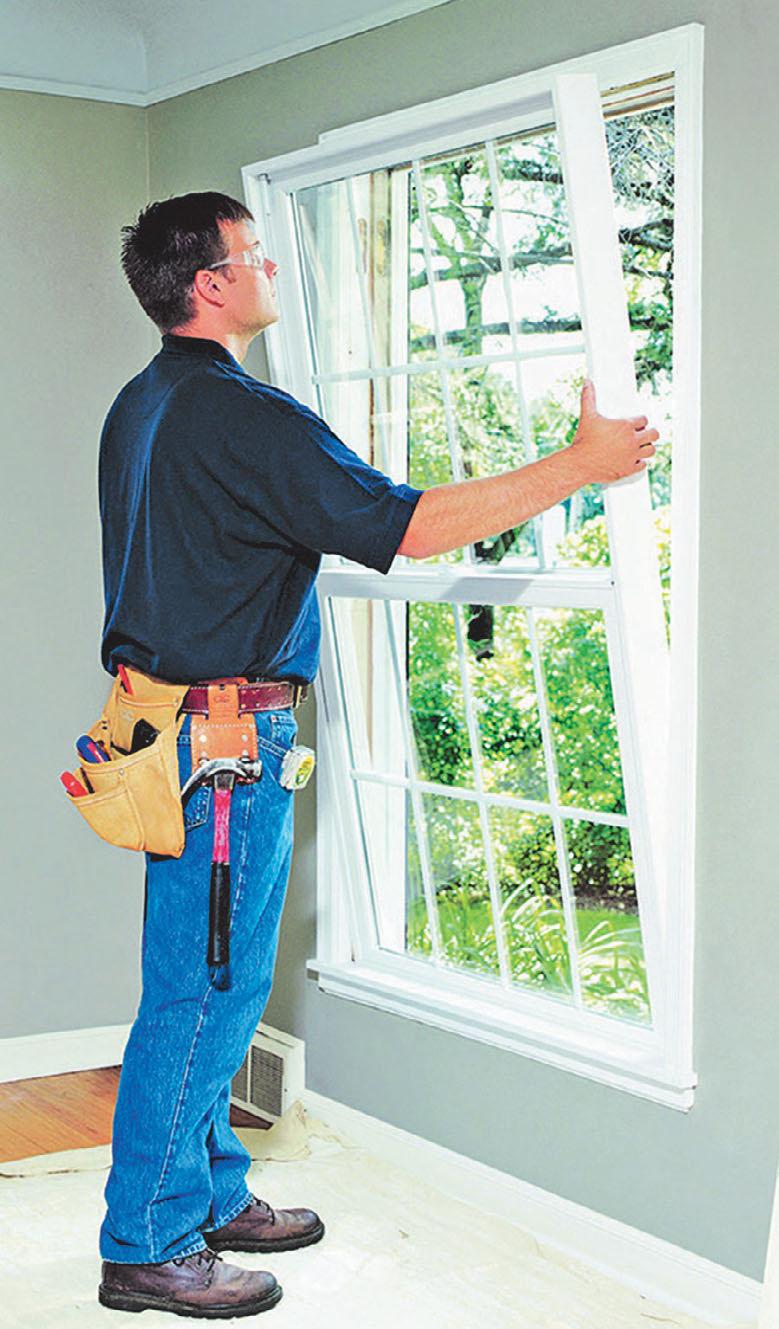
She has had to change her system for the latest litter. Usually, she invites the soon-tobe owners to visit the puppies when they’re 2 weeks old and return weekly.
“It’s good for them to get to know each other and for the puppies to be handled at a young age like that,” Fairbanks said. “But with COVID, we’ve mostly done photos. I’m a little nervous about people holding up the puppies to their faces. So we’re waiting until they’re at least 6 weeks old.”
An unexpected side effect of the pandemic; Fairbanks had a hard time buying enough of specific brands of dog food due to demand.

“And you really don’t want to switch up your dog’s food quickly and with puppies, I don’t like to switch it at all,” Fairbanks said.
Schokker also breeds dogs and added that although she doesn’t plan on having a litter for another year, she’s also already got a long list of people interested.
“People are really looking for puppies right now,” she said. “Which is OK with me as that helps keep us afloat. We just took January off in order to offset costs and we’re back and seeing an upward trend. We just hope it continues.”
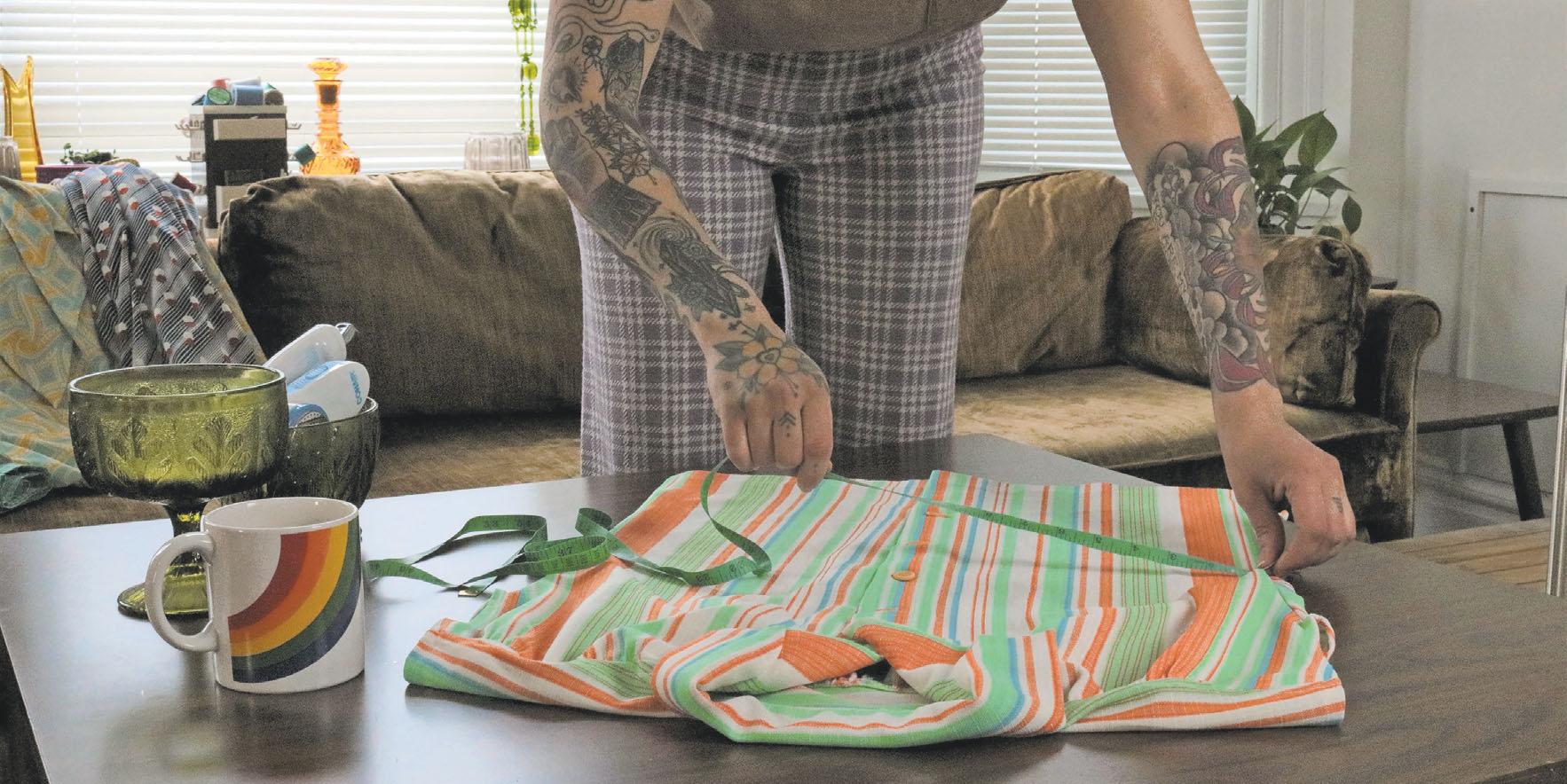

Duluth vintage sellers have a perspective not everyone shares: The COVID-19 pandemic has been great for their businesses. Instagram has become the premier selling platform for many vintage businesses in Duluth, including Christina Livadaros, owner of Voula Vintage.

Livadaros started her business in 2019 and decided to nix a brick-and-mortar booth once the pandemic hit so she could sell without fear of business restrictions due to the virus.
“I think people are wearing pajamas more, but are also more interested in what they will get to wear at one point,” Livadaros said.
Thanks to social media, she’s resold vintage clothing not just to customers in northern Minnesota, but all over the world.
“The algorithm has been kind to me,” Livadaros said. “I get little pockets of people because that’s how the internet seems to work. My reviews are people wearing the clothes and taking a picture and showing their friends that they like what they got from me. If their friends see it and they all live in New York, then I get a New York following.”
Online, vintage sellers share photos and measurements of their products. Most sales happen by commenting to claim an item and exchanging over apps like Venmo. Other selling platforms, like Etsy, Depop or Shopify, are also popular for vintage items. Some vintage sellers have small booths in
stores and have pop-up shops at various businesses and conventions.
Amanda Belcher, who has operated Spirit Valley Vintage since 2014, was content with her clothes being sold from a rack in Spirit Valley neighborhood’s Annex Novelty Shop, but she saw that the vintage market was expanding online. Now she can sell to anyone, anywhere from Instagram — and in 2020, she saw interest in vintage really pick up.
“I think over the last year it’s really kind of exploded,” Belcher said. “I’ve even seen a change in the places I used to thrift. Now they’re kind of cutting out the people that flip clothes and increasing their prices.”
A NEW LIFE : Page 13
The algorithm has been kind to me.
– CHRISTINA LIVADAROS owner of Voula Vintage
















































At Johnson Carpet One Floor & Home, we know how important it is for you to feel confident in your flooring selection. Therefore, we strive to ensure that the floor we’ve created together, is as beautiful as the one in your dreams. If not, we’ll replace it for free. That’s what we call The Beautiful Guarantee®.







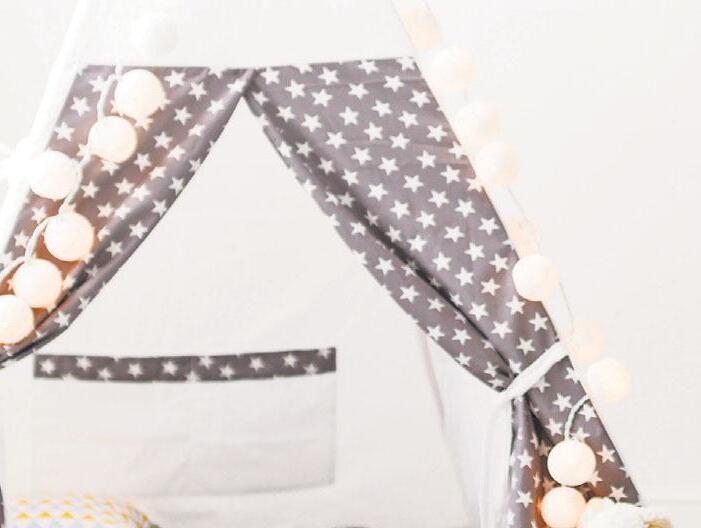







Voted Best Flooring for 4 years in a row!










































